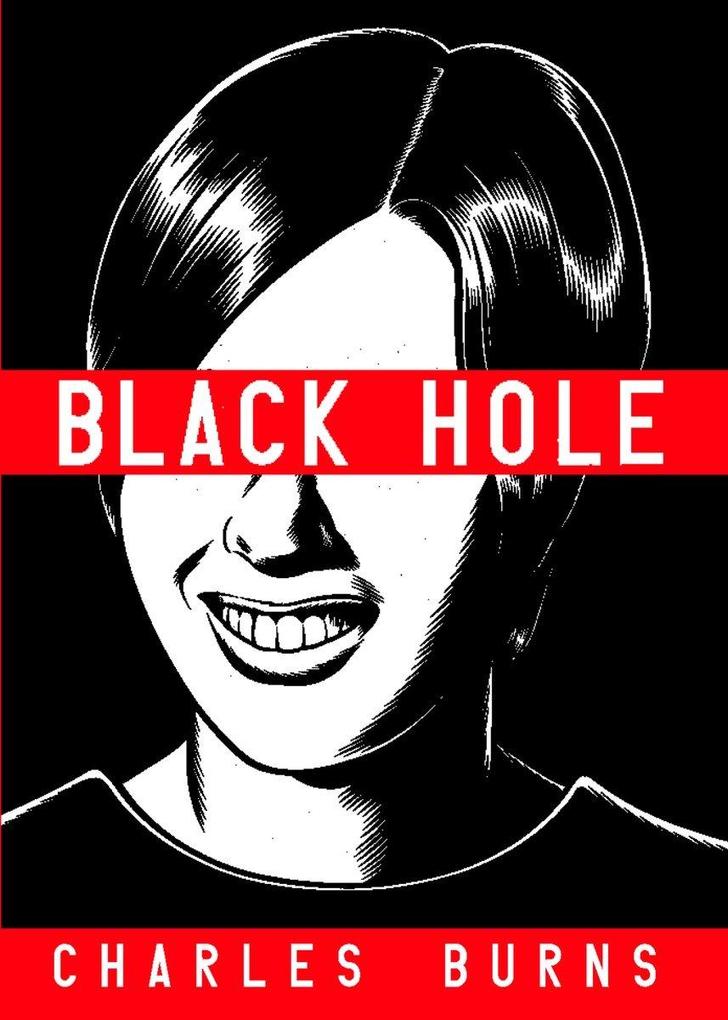
Zustellung: Mo, 13.01. - Fr, 17.01.25
Versand in 2 Wochen
VersandkostenfreiBestellen & in Filiale abholen:
Suburban Seattle, the mid-1970s. We learn from the out-set that a strange plague has descended upon the area's teenagers, transmitted by sexual contact. The disease is manifested in any number of ways — from the hideously grotesque to the subtle (and concealable) — but once you've got it, that's it. There's no turning back.
As we inhabit the heads of several key characters — some kids who have it, some who don't, some who are about to get it — what unfolds isn't the expected battle to fight the plague, or bring heightened awareness to it , or even to treat it. What we become witness to instead is a fascinating and eerie portrait of the nature of high school alienation itself — the savagery, the cruelty, the relentless anxiety and ennui, the longing for escape.
And then the murders start.
As hypnotically beautiful as it is horrifying, Black Hole transcends its genre by deftly exploring a specific American cultural moment in flux and the kids who are caught in it- back when it wasn't exactly cool to be a hippie anymore, but Bowie was still just a little too weird.
To say nothing of sprouting horns and molting your skin...
As we inhabit the heads of several key characters — some kids who have it, some who don't, some who are about to get it — what unfolds isn't the expected battle to fight the plague, or bring heightened awareness to it , or even to treat it. What we become witness to instead is a fascinating and eerie portrait of the nature of high school alienation itself — the savagery, the cruelty, the relentless anxiety and ennui, the longing for escape.
And then the murders start.
As hypnotically beautiful as it is horrifying, Black Hole transcends its genre by deftly exploring a specific American cultural moment in flux and the kids who are caught in it- back when it wasn't exactly cool to be a hippie anymore, but Bowie was still just a little too weird.
To say nothing of sprouting horns and molting your skin...
Produktdetails
Erscheinungsdatum
18. Oktober 2005
Sprache
englisch
Seitenanzahl
368
Autor/Autorin
Charles Burns
Verlag/Hersteller
Produktart
gebunden
Abbildungen
B&W DRAWINGS THROUGHOUT
Gewicht
1110 g
Größe (L/B/H)
244/179/45 mm
ISBN
9780375423802
Entdecken Sie mehr
Pressestimmen
Winner of the Eisner, Harvey, and Ignatz Awards
"Smoldering brilliant . . . What Burns does so memorably here is blend the erotic and the frightening to create a black hole the reader will want to visit again and again."
The Boston Globe
"The best graphic novel of the year. . . . One of the most stunning graphic novels yet published."
Time
"Black Hole is Burns's masterwork."
The New York Times Book Review
"Surreal and unnerving . . . A remarkable work."
Chicago Sun-Times
"Smoldering brilliant . . . What Burns does so memorably here is blend the erotic and the frightening to create a black hole the reader will want to visit again and again."
The Boston Globe
"The best graphic novel of the year. . . . One of the most stunning graphic novels yet published."
Time
"Black Hole is Burns's masterwork."
The New York Times Book Review
"Surreal and unnerving . . . A remarkable work."
Chicago Sun-Times
Bewertungen
0 Bewertungen
Es wurden noch keine Bewertungen abgegeben. Schreiben Sie die erste Bewertung zu "Black Hole" und helfen Sie damit anderen bei der Kaufentscheidung.









